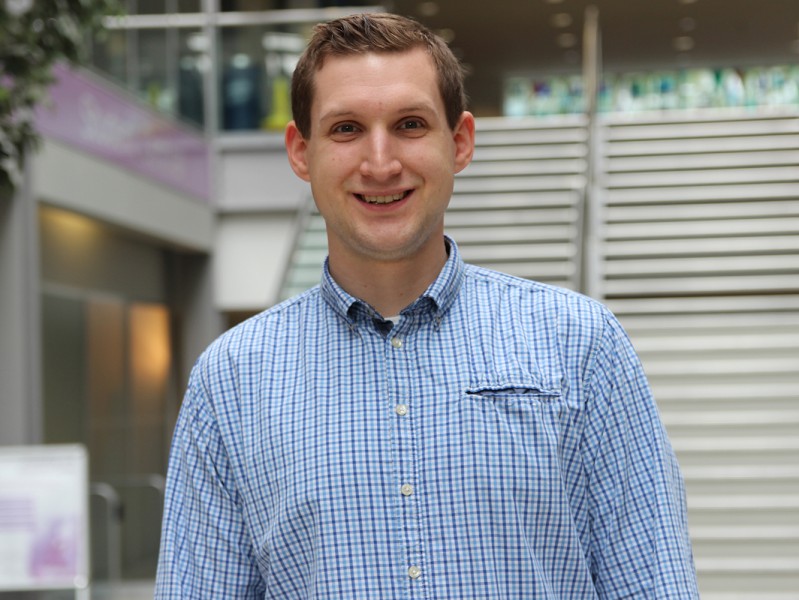Opinion piece: Protecting the rights of EU citizens in Scotland, but what next?
Wednesday 08 January 2020

As uncertainty around Brexit continues, the Scottish Parliament supported a governmental motion welcoming EU citizens in Scotland, recognising their contribution to the community and urging for more assurance regarding their future status in a post-Brexit Britain. Debates in the Scottish Parliament on Brexit are not new, but this one was timely given the UK has had a third extension to exiting the EU, meaning uncertainty for EU citizens in the UK, and British nationals in Europe, remains. The Scottish Parliament does not have powers to legislate on migration, however, research showed that positive messages coming from Scottish politicians are welcomed and needed by EU citizens.
There exists agreement among MSPs that EU citizens are welcome in Scotland, are net contributors, and many employers such as the NHS, academia, the food and fishing industries rely on them. The debate focussed on employment statistics and lacked emphasis on concepts such as “integration”, “social cohesion” or “cohesive society”. It failed to recognise how communities can be brought together. In 2019, the Home Office has published its third edition of the Integration Framework, which recognises everyone's responsibilities around integration.
To date, responses to Brexit have been passive and focused on symptoms, but not causes. Future rights of EU citizens have been widely discussed, but not integration or cohesion of local communities. MSP Lewis Macdonald pointed out the sense of rejection will not simply go away. Participants in the Robert Gordon University (RGU) study exploring the impact of Brexit on mental health and wellbeing of EU citizens showed that the referendum and its aftermath was a traumatic event accompanied by rejection, disfranchisement and disempowerment. Similarly, other researchers have shown that the mental health of the British people has also been impacted. With this third extension to Brexit, it still remains unclear what the final outcome will be. Regardless, the Brexit vote has unleashed a lot of emotions, which will not disappear overnight. Some of the underlying challenges are the incidence and prevalence of hate crime levels in Scotland and the underreporting of these to the police. Secondly, despite the results of the 2016 referendum, recent research does not suggest that Scottish people are more open to migration than English. The strongest supportive and welcoming narrative has come from the Scottish Government in comparison to the messages originating from some politicians in Westminster.
The amendment, proposed by MSP Claire Baker and accepted by the Minister, recognises the individual and personal impact of Brexit and its aftermath. During this debate, RGU’s study and its findings about how Brexit impacted mental health and wellbeing was noted. A significant debate ensued about ‘settled status’ for EU migrants. Organisations such as the 3 Million call for turning the settled status application into a registration system and providing EU citizens with the physical proof of their status. The Scottish Parliament joined these calls. Controversies around settled status are multiple, nevertheless, this does not explain why the percentage of EU citizens registered in Scotland is lower than in the rest of the UK. Those who do not apply by the deadline risk being stuck in legal limbo. This uncertainty is urgent to tackle, as one UK minister suggested that those who do not apply could be deported after Brexit. The Scottish Government took the leading role in Scotland to encourage EU citizens to apply for settled status. They funded Citizen’s Advice to assist in applying and recently offered additional funding to the Citizen’s Right Project and a new charity called Settled. Securing the status of EU citizens is important, but vital issues around building a cohesive society or rebuilding trust in the communities affected by the Brexit referendum are outstanding.
Scottish politicians agree that the ageing population requires positive net migration. A third open letter from the First Minister to EU citizens and the ongoing Stay in Scotland campaign are helpful, but it is still unclear if this message will be enough to convince EU citizens to remain. To persuade others to move to, settle in, and call Scotland home, the Scottish Government has to be more proactive. These campaigns are not new. While Jack McConnell was the First Minister, he was actively encouraging EU migrants to settle in Scotland, as he aimed for Scotland’s population to stay above five million people. However, this time Scottish politicians have competition for the hearts of EU citizens: recently the Polish ambassador in the UK called on his nationals to “seriously consider returning” to Poland.
